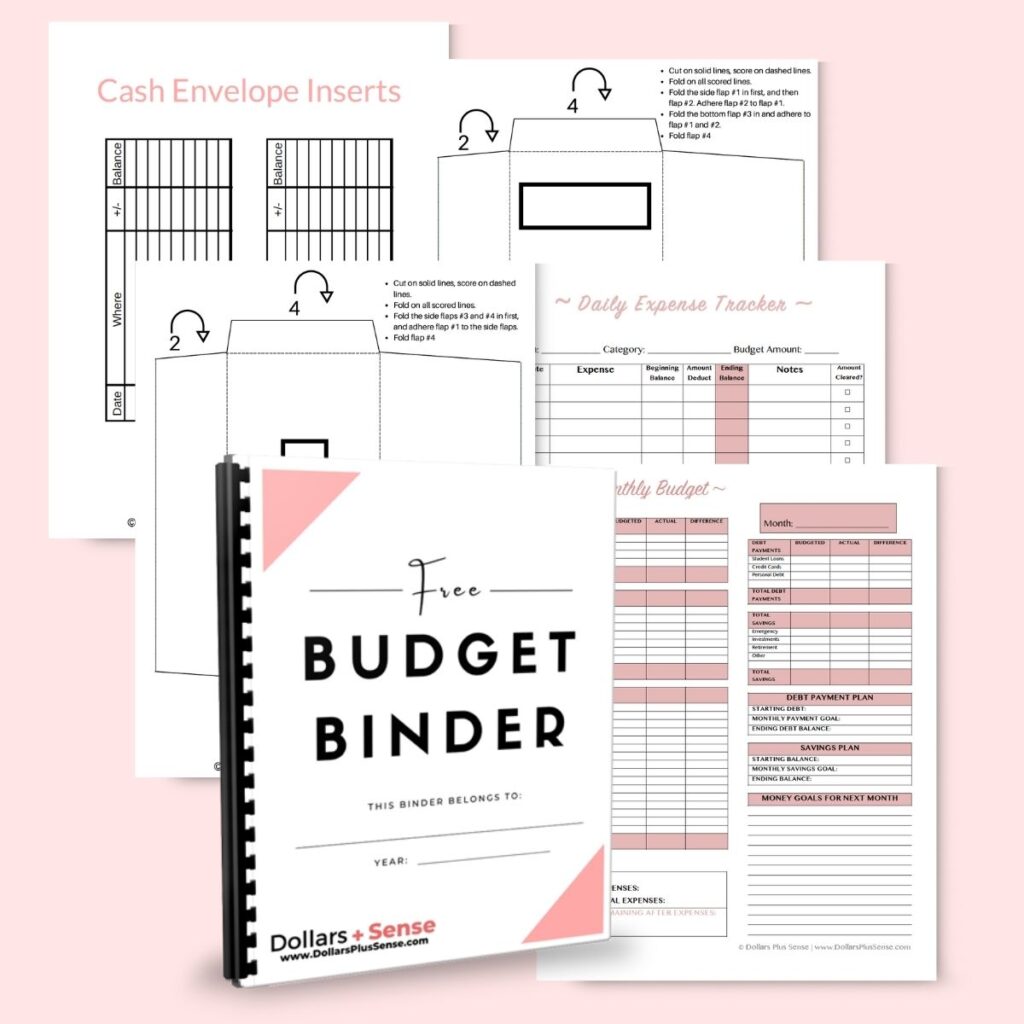Last Updated October 13, 2022
Whether your credit card company is suing you for any unpaid debts, or you are suing your credit card company for wrongdoing, knowing how to settle credit card debt before going to court is essential. Debt settlement could save you precious time, money, and frustration. Trust me, as a lawyer, you want to avoid court as much as possible. Keep reading to learn how to settle credit card debt before going to court.
But before we get started, although I’m a lawyer, I’m not YOUR lawyer so make sure you consult with an attorney for any legal advice you need.
How Do You Settle Credit Card Debt Before Going To Court?
If you want to settle your credit card debt before going to court here are some things you can do:
- Create a realistic budget;
- Make a repayment plan;
- Contact your creditors;
- Debt consolidation.
1. Make A Budget
Before you start talking to your creditors to settle your credit card debt, the first step you should take is to make a budget. Once you make a budget, you will have a good idea of how much you can afford to pay towards your debts every month.
If you need help making a budget, you can download my FREE Monthly Budget Worksheet.
2. Make a Repayment Plan
Next, make a repayment plan. You already know how much you can afford to put to your debt every month, so consider making an installment payment agreement with your creditor.
Another option is, to consider offering a one-time lump-sum payment instead of offering a repayment plan. You might end up paying less with a lum-sum payment than installment payments over a long period of time. Most collectors would rather take a lump-sum payment anyway because the debt buyer probably purchased your debt for pennies on the dollar.

3. Contact Your Creditors
Contact your creditors to negotiate your repayment plan with them (even if you have been turned down before). When you contact your credit card issuer tell them you’re having trouble making ends meet and why it’s difficult for you.
The point of this call is to try to work out a modified payment plan that reduces your old debt to credit card payments to a more manageable level. It doesn’t make sense to agree to payments that you still cannot afford. That’s why you want to make sure you make a budget and map out your repayment plan first—so you can know how much you can afford.
When making a lump sum offer, you already know the amount you can realistically pay (because you figured that out before you called), so don’t lose sight of that number. When offering a lump-sum payment start by lowballing and try to work toward a middle ground. If you know you can only pay 50% of your original debt, try offering around 30%. Again, avoid agreeing to pay an amount you know you can’t afford.

You can find the telephone number of your lender on your card or your statement. Be persistent and polite. And finally, keep good records of your debts, so that when you do reach the credit card company, you can explain your situation. You may be able to resolve the settlement in one go, or it might take a few calls to find an agreement that works for both you and your creditor.
If you feel like you’re not a good negotiator over the phone, you can also write a debt settlement letter or use a debt settlement company (beware of this option because not all debt settlement companies are legit).
Note, that you may have to pay taxes on the portion of the debt that’s forgiven if the amount is $600 or more. Also, settled debts are generally marked as “Settled” or “Paid Settled,” which doesn’t look great on credit reports.
3. Debt Consolidation
Once you renegotiate a new debt repayment plan with your creditors, another option you can use to help get your debt under control is to try and get a lower interest rate. Sometimes just reducing the amount of interest you’re paying on your debt makes it more manageable, saves you thousands of dollars, and helps you get out of debt faster.
Please note that you should be careful about putting up collateral (like your home) to get money to pay off an unsecured debt (like unpaid credit card debt).
Unsecured debt means you do not have to put up any collateral like your house or car to get it. However, if you get a second mortgage or a home equity line of credit (which is a loan secured by collateral—usually your house) to pay off a credit card, and you stop paying on that NEW loan, you could lose your home.
If you are unable to reach a settlement with your credit card company, or if you feel like you’re not being treated fairly by banks, lenders, and other financial institutions, you can contact the Consumer Financial Protection Bureau.

How Do You Find The Right Credit Card Debt Settlement Company?
Here are some tips to find the right credit card debt settlement company.
Research The Company
Start by looking for online reviews of reliable debt settlement companies. If you’re unsure where to start, Consumer Affairs magazine publishes a reputable list, and the Federal Trade Commission (FTC) also offers information about debt settlement companies.
Check For Fees
Companies claiming to eliminate your debt for an outrageous fee may be a scam. Usually, debt settlement companies charge a fee of 20% to 25% of what you owe, and won’t charge this until after your debt has been settled.
Check For Lawsuits Or Complaints
Before signing up with a debt settlement company, always look for lawsuits and complaints by searching them on the Better Business Bureau or your state attorney general’s office.

Determine If The Company Is Legitimate
Legitimate debt settlement companies will never ask for an upfront lump-sum, guarantee that your debtors will forgive your debts, or work with you without a contract. Make sure that the company has an actual address and phone number where you can talk to a real person, and that the company puts all its terms and fees in writing.
If you want to get more educated about the type of debt relief scams out there, you can read this article from the FTC.
What Are The Benefits Of Settling Credit Card Debt Before Going To Court?
Settling credit card debt before dealing with a debt collection lawsuit is almost always worth a try—keep reading to discover the benefits.
Avoid High-Interest Rates
The longer you wait to pay off your debt, the more interest it can accrue. If you can settle your credit card debt before going to court, it could save you from paying years of high-interest rates.
Avoid Late Fees
If you’ve been making late payments or not making monthly payments at all, you’ll likely be burdened with some hefty late fees. Make efforts to settle your debt before your late fees accumulate over time.

Avoid Damage To Your Credit Score
While debt settlement can negatively impact your credit score in the short term, it can help your credit in the long run. If you can get some of your debt forgiven, you can pay off your debt quicker, make on-time monthly payments, and work towards building your credit score back up.
Get A Lower Interest Rate On Future Loans
Once you’ve settled your debt, paid off the remaining debt, and built up your credit, you can take out future loans with lower interest rates.
Save Money In The Long Run
Many creditors will agree to forgive between 40% and 50% of the debt you owe. This means that if you owe $20,000, you could potentially save $10,000 by getting your debt settled!
What Cons Of Settling Credit Card Debt Before Going To Court?
Although there are many benefits to settling credit card debt before goingn to court, it’s important for you to know some of the cons that can come with that as well. Here are some of the negative side effects to settling credit card debt before going to court…
You May End Up Paying More Than The Original Debt
Because you’ll want to stop making payments on the original debt as you go through the debt settlement process, you may accumulate several late fees and interest on what you owe. If your debt is not settled, you may owe more than you initially did because of the fees you have accrued.

Settling Debt Could Negatively Impact Credit Score
Your credit score can still take a hit, even if you settle your debt. When you settle your debt, it will be reported on your credit report and your credit score will likely drop.
There May Be Taxes Owed On The Amount Of Debt Settled
The IRS considers forgiven debt to be taxable income. However, if you can demonstrate that you are insolvent, meaning that your total liabilities exceed your total assets, you will not have to pay taxes on your unpaid debt.
What Are The Risks Of Not Settling Credit Card Debt Before Going To Court?
If you ignore your debt collectors, you might get sued for the amount you owe. If don’t settle your credit card debt before going to court, you may have to deal with some significant consequences, listed below.
You May Have To Pay The Full Amount Of The Debt
If you don’t attempt debt settlement, you won’t have a chance to get your debt reduced. If a creditor decides to sue you, they will make sure they sue you for the full amount of debt you owe. As a result, you’ll likely have to pay back the total debt amount, plus any fees you’ve accrued along the way.

You May Have To Pay Additional Fees And Costs
Going to court requires additional time, fees, and other hidden costs. Settling your debt before going to court can save you time and money in the long run.
The Court May Enter A Judgment Against You
If you’re sued and lose, a judge will be entered against you. Once a judgment is entered against you, it can negatively impact your financial standing. It’s better to settle your debt to avoid getting to this point. If you don’t respond to the court summons or appear in court, the debt collector may win by default judgment.
Your Wages Could Be Garnished
If a judgment is entered against you, the debt collector will have stronger tools, like wage garnishment, which will affect your take-home income.
How Do You Sue A Credit Card Company?
Your creditors can sue you for unpaid debts, but it’s not a one-way street—you can sue them too. You can sue your credit card company if they have been harassing or abusing you for any outstanding debts. But before you decide to go to court, let’s examine what it takes to sue a credit card company.
Research The Process Of Suing Your Credit Card Company
The first step is to determine if you can make your case to a jury or if you have to go through arbitration. Check to see if your user agreement has a mandatory arbitration clause.

In the past, credit card companies made it mandatory to resolve disputes through arbitration because it was cheaper than going to court. Credit card companies also liked that arbitration proceedings could be confidential. This means the press, other consumers, and attorneys would be less likely to know the outcomes of cases.
As a result, financial institutions like banks and credit card companies began to put clauses in their terms of service. These clauses mandate that customers forfeit their right to sue the company in court. Instead, they must resolve any disputes in arbitration, such as cases like fraud or discrimination.
Arbitration is usually binding, which means that you will have to accept the decision of the arbitrator (the person appointed to settle a dispute). If you go to court, you will have a trial by jury and the decision of the jury will be final.
Determine If You Have A Case And If It’s Worth The Money To Sue
You can sue a debt collector or credit card company for harassment or other legal issues, like credit report errors, wage garnishment, or debt settlement.

When it comes to credit card debt, the Fair Debt Collection Practices Act, or FDCPA, prohibits debt collectors from engaging in unfair or abusive practices. Under the FDCPA, debt collectors must:
- Only contact you between 8 AM and 9 PM.
- Not contact you at work if they know your employer disapproves.
- Not harass, oppress, or abuse you.
- Not lie when collecting debts, like implying you committed a crime.
- Identify themselves during phone calls.
- Stop contacting you if you ask them to do so in writing.
In addition, the statute of limitations for credit card debt limits the amount of time a lender or collection agency has to sue customers for non-repayment. This varies by state, but generally ranges between three and ten years.
An attorney is the best person to consult—they can review your case and determine the best person to sue.
Gather Any Proof Or Documentation You Will Need For Court
Gather credit card statements, proof of your finances, old credit card agreements, and anything relevant to your case. Organize these chronologically and comb through them thoroughly to ensure that the amount you owe is accurate.

File The Necessary Paperwork
An attorney can help you with any paperwork you’ll need during the lawsuit. Some attorneys will offer a free consultation. So it’s a good idea to reach out to an attorney and know your legal rights. You can find federal court forms here.
Serve The Credit Card Company With The Lawsuit
The process of serving a credit card company, or anyone, with a lawsuit varies from state to state. A licensed attorney can help you navigate through this process. Usually, the process goes something like this:
- Determine the correct jurisdiction of the company. In other words, figure out where the company is based.
- Draft a demand letter. The demand letter will be submitted to the court and defendant explaining your case and the damages for which you are suing.
- Fill out the court forms, register with the court, and pay the court fees.
- Receive your court date.
- Serve documents to the defendant via email.

Attend Court And Present Your Case
Preparing for a debt court hearing can be nerve-racking. The following tips can help you present your case successfully:
- Get a good night’s sleep and eat breakfast.
- Practice with your attorney what you will say to the court.
- Organize your documents. Have four copies of all your exhibits: one for the court, one for the court clerk, one for the opposing party, and one for yourself.
- If you are representing yourself, outline all of your arguments so that you don’t freeze.
- Dress professionally, conservatively, and respectfully.
- Your attorney can prepare you so that you know exactly what to expect and how to argue your case.
Summary
Now you know how to settle credit card debt before going to court. Debt settlement is a process by which you negotiate with your creditors to pay off a portion of what you owe. In most cases, it is a better option than going to court because it allows you to pay off your debt for less than what you owe. However, there are several things to consider before deciding whether or not debt settlement is right for you, such as the tax consequences and the potential for your credit score to still drop further. Make sure to do your research and get legal advice before making a decision.
Related Articles:




